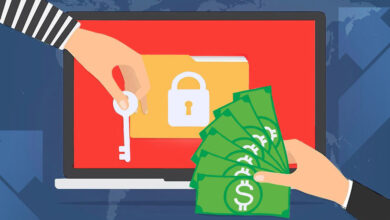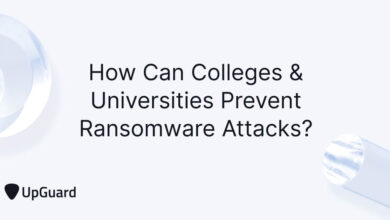
Las Vegas Casinos & Hotels Cybercrime Soft Targets
Casinos and hotels in Las Vegas become soft targets for cybercriminals – a chilling reality. These glittering establishments, synonymous with luxury and entertainment, house vast amounts of sensitive data, making them prime targets for sophisticated cyberattacks. From ransomware crippling operations to phishing scams targeting high-rollers, the potential for damage is immense. We’ll delve into the vulnerabilities, the types of attacks, and what’s being done – or should be done – to protect these iconic landmarks from the digital underworld.
The sheer scale of data involved – financial transactions, guest information, surveillance footage – makes a successful breach devastating. Not only is there the direct financial loss, but the reputational damage can be crippling, driving away tourists and investors alike. The contrast between older, less secure systems and the more modern, but still vulnerable, infrastructures of newer establishments adds another layer of complexity to this increasingly critical issue.
We’ll explore the cybersecurity strategies employed, the role of law enforcement, and the crucial human element in preventing these attacks.
Vulnerability of Las Vegas Casino and Hotel Systems

The glitz and glamour of Las Vegas casinos and hotels mask a complex and potentially vulnerable IT infrastructure. These establishments rely on sophisticated systems to manage everything from gaming operations and financial transactions to guest services and security, creating a rich target for cybercriminals. Understanding the vulnerabilities within these systems is crucial to appreciating the potential consequences of a successful attack.The typical IT infrastructure of a large Las Vegas casino and hotel is a sprawling network encompassing numerous interconnected systems.
This includes point-of-sale (POS) systems for restaurants and shops, gaming machines linked to central servers, property management systems (PMS) handling reservations and guest data, surveillance systems monitoring the entire property, and sophisticated network infrastructure connecting all these components. Furthermore, many casinos integrate online gaming platforms, adding another layer of complexity and potential vulnerabilities. These systems often involve legacy technologies alongside newer implementations, creating compatibility issues and security gaps.
Vegas casinos and hotels, with their vast interconnected systems, are prime targets for cyberattacks. Improving their security requires robust, adaptable applications, which is where the advancements in domino app dev, the low-code and pro-code future , come into play. These new development methods can help create the secure, scalable solutions needed to protect these vulnerable businesses from increasingly sophisticated threats.
Potential Vulnerabilities in Casino and Hotel Systems, Casinos and hotels in las vegas become soft targets for cybercriminals
The interconnected nature of these systems presents numerous opportunities for exploitation. Outdated or poorly configured software, insufficient network security, and a lack of robust access controls are common vulnerabilities. For example, a breach in a less secure system, like a restaurant POS system, could potentially provide a foothold for attackers to move laterally across the network and access more sensitive data, such as financial records or guest information.
The use of legacy systems, while often cost-effective to maintain, can present significant security risks due to a lack of modern security patches and updates. Furthermore, human error, such as weak passwords or phishing attacks targeting employees, remains a significant vulnerability. Insider threats, whether malicious or accidental, also pose a substantial risk.
Las Vegas casinos and hotels, with their vast interconnected systems, are prime targets for cyberattacks. The sheer volume of sensitive data they handle makes robust security crucial, which is why understanding solutions like bitglass and the rise of cloud security posture management is so important. These advancements in cloud security are vital in protecting these vulnerable establishments from increasingly sophisticated threats, safeguarding both customer and business data.
Consequences of a Successful Cyberattack
The consequences of a successful cyberattack on a Las Vegas casino and hotel can be severe and far-reaching. Financially, the losses could be astronomical, encompassing direct theft of funds, losses from disrupted operations, and the costs associated with remediation and legal repercussions. Reputational damage is another significant concern; a major data breach could lead to a loss of customer trust, impacting future bookings and revenue.
Disruption of operations, such as the inability to process transactions or access security systems, can bring the entire establishment to a standstill, resulting in significant financial losses and operational chaos. Moreover, the release of sensitive guest data could lead to identity theft and legal liabilities.
Security Measures in Older vs. Newer Establishments
Older establishments may rely on legacy systems with limited security features, posing a higher risk of cyberattacks. They might lack comprehensive security information and event management (SIEM) systems for threat detection and response. In contrast, newer establishments are more likely to have implemented more robust security measures, including advanced firewalls, intrusion detection systems, and regular security audits. They might also invest in employee training programs focused on cybersecurity awareness and best practices.
However, even newer establishments are not immune to attacks, as demonstrated by various high-profile breaches across various industries. The ongoing evolution of cyber threats requires constant vigilance and adaptation of security protocols, regardless of the age of the establishment.
Types of Cyberattacks Targeting Casinos and Hotels
Las Vegas, the entertainment capital of the world, is a prime target for cybercriminals. The sheer volume of sensitive data handled by casinos and hotels – from financial transactions and customer information to security systems and operational data – makes them incredibly lucrative targets. The potential for significant financial losses and reputational damage further incentivizes malicious actors. Understanding the types of cyberattacks these establishments face is crucial for effective cybersecurity strategies.The interconnected nature of modern casino and hotel systems, coupled with the often-legacy technology used in some areas, creates vulnerabilities that cybercriminals actively exploit.
Attacks can range from relatively simple phishing campaigns to sophisticated ransomware deployments, each with potentially devastating consequences.
Ransomware Attacks
Ransomware attacks are a significant threat to casinos and hotels. These attacks involve encrypting critical data, rendering systems unusable, and demanding a ransom for decryption. Methods used include exploiting software vulnerabilities, using phishing emails containing malicious attachments or links, or leveraging compromised credentials obtained through other attacks. The impact can be catastrophic, leading to operational downtime, financial losses from disrupted services, reputational damage, and potential legal repercussions from data breaches.
For example, a ransomware attack could cripple a casino’s gaming systems, leading to lost revenue and frustrated customers. A hotel might face disruptions to its booking systems, guest services, and security systems, impacting its ability to operate effectively.
Phishing Attacks
Phishing attacks are a common entry point for more sophisticated cyberattacks. These attacks typically involve deceptive emails, websites, or text messages designed to trick employees or guests into revealing sensitive information, such as login credentials, credit card details, or personal data. Social engineering techniques are often employed, such as creating a sense of urgency or impersonating legitimate organizations.
The potential impact of a successful phishing attack can range from data breaches and financial losses to the compromise of internal systems, paving the way for further attacks like ransomware. For example, a phishing email impersonating a casino’s IT department could trick an employee into revealing their password, allowing attackers to gain access to the network.
Denial-of-Service (DoS) Attacks
Denial-of-service attacks aim to disrupt the availability of online services by overwhelming systems with traffic. These attacks can be launched using botnets, which are networks of compromised computers controlled remotely by attackers. The impact of a DoS attack on a casino or hotel can be significant, leading to website outages, disrupted online booking systems, and difficulties accessing critical internal systems.
A large-scale DoS attack could severely impact a casino’s online gaming operations or a hotel’s ability to manage reservations and guest services, resulting in substantial financial losses and reputational damage. Imagine the impact on a major hotel chain during peak season if their online booking system was rendered inaccessible due to a DoS attack.
SQL Injection Attacks
SQL injection attacks target database systems by injecting malicious SQL code into input fields. This allows attackers to manipulate database queries, potentially leading to data breaches, unauthorized access, and system manipulation. Attackers might exploit vulnerabilities in web applications or other interfaces to inject the malicious code. The impact can range from data theft to complete control over the database, allowing for manipulation of financial records, customer data, or even security systems.
For instance, an attacker could use SQL injection to extract customer credit card information from a hotel’s reservation database.
| Attack Type | Method | Potential Impact |
|---|---|---|
| Ransomware | Exploiting vulnerabilities, phishing emails, compromised credentials | Operational downtime, financial losses, reputational damage, legal repercussions |
| Phishing | Deceptive emails, websites, text messages; social engineering | Data breaches, financial losses, compromise of internal systems |
| Denial-of-Service (DoS) | Overwhelming systems with traffic using botnets | Website outages, disrupted online services, difficulty accessing internal systems |
| SQL Injection | Injecting malicious SQL code into input fields | Data breaches, unauthorized access, system manipulation |
Data Breaches and Their Impact

The vulnerability of Las Vegas casinos and hotels to cyberattacks extends far beyond simple system disruption; it directly impacts the sensitive data they hold, leading to potentially devastating data breaches. These breaches not only compromise customer trust but also expose the businesses to significant legal and financial repercussions. The sheer volume and sensitivity of the data stored make these establishments prime targets for malicious actors.The types of data stored by these establishments are incredibly diverse and highly sensitive.
This includes financial information like credit card details, banking account numbers, and player loyalty program data. Guest data encompasses personally identifiable information (PII) such as names, addresses, phone numbers, email addresses, and even passport details. Furthermore, casinos maintain extensive surveillance footage, containing potentially sensitive images and videos of patrons. The unauthorized access to any of this data can have severe consequences.
Legal and Financial Ramifications of Data Breaches
Data breaches in the hospitality and gaming industries trigger a cascade of legal and financial consequences. Depending on the jurisdiction, companies can face hefty fines for failing to comply with data protection regulations like GDPR (General Data Protection Regulation) or CCPA (California Consumer Privacy Act). These fines can run into millions of dollars, severely impacting profitability. Beyond regulatory fines, the companies are vulnerable to class-action lawsuits from affected individuals.
These lawsuits can result in massive payouts for compensation, legal fees, and reputational damage. The cost of remediation, including credit monitoring services for affected customers and incident response, also adds significantly to the overall financial burden. The long-term impact on brand reputation and customer loyalty can be equally damaging, leading to a decline in revenue and market share.
Examples of Real-World Data Breaches
Several high-profile data breaches have highlighted the vulnerabilities of the hospitality and gaming sectors. While specific details are often kept confidential due to legal reasons and ongoing investigations, the general impact is widely reported. For instance, a hypothetical breach affecting a major casino chain could expose millions of customer records, including financial and personal details, leading to widespread identity theft and financial losses for affected individuals.
The subsequent legal battles and reputational damage could cripple the company’s financial stability and market position. Similarly, a breach targeting a hotel chain might expose sensitive guest data, including passport information and travel itineraries, potentially facilitating fraud and identity theft on a massive scale. The resulting fines, lawsuits, and loss of customer trust could significantly impact the hotel’s profitability and long-term sustainability.
The impact extends beyond the immediate financial losses, affecting the company’s reputation and potentially deterring future business. Such incidents serve as stark reminders of the critical need for robust cybersecurity measures within the industry.
Cybersecurity Best Practices for the Gaming and Hospitality Industries
Protecting the digital assets of Las Vegas casinos and hotels requires a multi-layered, proactive approach. Given the sensitive nature of financial transactions, guest data, and operational systems, a robust cybersecurity strategy is not just a good idea—it’s a necessity for maintaining business continuity, protecting reputation, and complying with regulations. A comprehensive strategy must address vulnerabilities across all systems and incorporate ongoing monitoring and adaptation.A large Las Vegas casino and hotel should adopt a holistic cybersecurity strategy encompassing people, processes, and technology.
This strategy must be aligned with industry best practices and regulatory requirements, such as PCI DSS for payment card data security and GDPR for personal data protection. Regular risk assessments and penetration testing are crucial to identify and address vulnerabilities before they can be exploited. Furthermore, the strategy must be flexible enough to adapt to the ever-evolving threat landscape.
Comprehensive Cybersecurity Strategy for a Large Las Vegas Casino and Hotel
This strategy should be built on a foundation of layered security controls, aiming to defend against threats at multiple points. This includes robust network security, endpoint protection, data loss prevention, and a strong security awareness program for employees. The strategy should also define clear incident response procedures to effectively manage and mitigate any security breaches. Finally, regular audits and reviews are vital to ensure the strategy remains effective and up-to-date.
Specific Security Measures to Mitigate Cyber Risks
Implementing a range of security measures is crucial for mitigating cyber risks. These measures should be prioritized based on a risk assessment, focusing on the most critical assets and potential threats.
- Intrusion Detection and Prevention Systems (IDPS): Deploying robust IDPS solutions at network perimeters and within internal networks is essential for detecting and preventing unauthorized access attempts. These systems can analyze network traffic for malicious activity, providing alerts and automatically blocking suspicious connections. Examples include network-based intrusion detection systems (NIDS) and host-based intrusion detection systems (HIDS).
- Multi-Factor Authentication (MFA): Implementing MFA for all user accounts, especially those with access to sensitive systems and data, significantly enhances security. MFA adds an extra layer of security beyond just passwords, requiring users to provide multiple forms of authentication, such as passwords, one-time codes, or biometric verification. This makes it much harder for attackers to gain unauthorized access even if they obtain a password.
- Employee Security Awareness Training: Regular and comprehensive security awareness training is vital. Employees should be educated on phishing scams, social engineering tactics, and safe password practices. Simulated phishing attacks can help assess employee awareness and reinforce training effectiveness. Training should also cover data security policies and procedures.
- Data Loss Prevention (DLP): DLP solutions monitor and prevent sensitive data from leaving the organization’s control. This includes measures to prevent unauthorized copying, emailing, or downloading of confidential information. DLP tools can be implemented at the network level, endpoint level, and application level.
- Regular Security Audits and Penetration Testing: Regular security audits and penetration testing are essential to identify vulnerabilities and weaknesses in the system. Penetration testing simulates real-world attacks to identify potential security breaches before they can be exploited by malicious actors. These assessments should be conducted by qualified security professionals.
- Vulnerability Management: Proactive vulnerability management involves regularly scanning systems for known vulnerabilities and patching them promptly. This reduces the attack surface and minimizes the risk of exploitation. Automated vulnerability scanning tools can help streamline this process.
- Access Control and Privileged Access Management (PAM): Strict access control measures, including role-based access control (RBAC), should be implemented to limit access to sensitive systems and data based on job responsibilities. PAM solutions manage and control access for privileged accounts, which often have elevated permissions and are attractive targets for attackers.
Effective and Cost-Effective Implementation
Implementing these measures requires a phased approach, prioritizing based on risk assessment. For instance, MFA can be implemented incrementally, starting with high-risk accounts. Employee training can be delivered through online modules and workshops, making it cost-effective and scalable. Open-source tools can be utilized for some security functions, reducing costs while maintaining effectiveness. Regular reviews and adjustments based on emerging threats and budget constraints are essential for long-term success.
Outsourcing some security functions, such as penetration testing, can be a cost-effective approach, leveraging the expertise of specialized firms. Cost-effectiveness can be achieved by focusing on a layered approach that combines preventative measures (like employee training and strong passwords) with detection and response mechanisms (like intrusion detection systems and incident response plans). This ensures that resources are allocated effectively to mitigate the most significant risks.
The Role of Regulation and Law Enforcement
The cybersecurity landscape for Las Vegas casinos and hotels is a complex interplay of technological vulnerabilities and legal frameworks. While significant regulations exist, the rapid evolution of cyber threats often leaves gaps, necessitating a continuous reassessment and adaptation of both legal frameworks and enforcement strategies. The effectiveness of these regulations and the responsiveness of law enforcement directly impact the industry’s ability to mitigate risk and recover from attacks.The existing regulatory landscape is a patchwork of federal and state laws, often industry-specific but not always comprehensively addressing cybersecurity.
Federal laws like the Gramm-Leach-Bliley Act (GLBA) and the Health Insurance Portability and Accountability Act (HIPAA) – if applicable – mandate data security and privacy measures for financial and health information, respectively. Nevada, being a major gaming hub, has its own gaming control board regulations which, while focused on operational integrity, indirectly touch upon cybersecurity through requirements for system security and data protection.
However, these regulations often lack specific and detailed cybersecurity standards, leaving room for interpretation and potentially insufficient protection against sophisticated attacks.
Existing Regulations and Their Limitations
Existing regulations often focus on the consequences of breaches rather than proactive prevention. For example, regulations might mandate reporting requirements after a breach but lack stringent guidelines for implementing preventative security measures. This reactive approach leaves casinos and hotels vulnerable to attacks that could be prevented with stronger proactive measures. Furthermore, the fragmentation of regulations across federal and state levels can create inconsistencies and complexities, making compliance challenging for businesses operating across multiple jurisdictions.
The lack of standardized cybersecurity frameworks and benchmarks also makes it difficult to assess the effectiveness of existing regulations and identify areas needing improvement. The speed of technological advancement consistently outpaces the ability of regulators to create and implement effective, up-to-date laws.
Areas Requiring Regulatory Improvement
A crucial area for improvement lies in mandating proactive cybersecurity risk assessments and the implementation of robust security frameworks, such as NIST Cybersecurity Framework, for all casinos and hotels. These assessments should be regularly updated and independently audited to ensure compliance. Additionally, stronger penalties for non-compliance are needed to incentivize proactive security measures. Improved coordination and collaboration between federal and state regulatory bodies is also essential to create a more unified and effective regulatory framework.
Finally, the regulations should be more specific in addressing emerging threats, such as ransomware and sophisticated phishing attacks, rather than relying on broad, general requirements.
Successful Law Enforcement Responses
While specific details of law enforcement investigations are often confidential due to ongoing investigations or to protect sensitive information, some successful responses have involved collaborative efforts between federal agencies like the FBI and state gaming control boards. In instances where significant data breaches have occurred, these collaborative investigations have led to the identification and prosecution of cybercriminals, as well as the recovery of stolen data.
For example, successful investigations have involved tracing the origin of attacks through digital forensics, leading to arrests and convictions. The successful prosecutions serve as deterrents, though the scale of the problem requires a more proactive approach from all parties involved. The sharing of threat intelligence between law enforcement agencies and the private sector is also crucial for early detection and response to cyberattacks.
The Human Element in Cybersecurity
The vulnerability of Las Vegas casinos and hotels to cyberattacks isn’t just about outdated systems or insufficient firewalls; it’s significantly about the people who work within them. Human error, whether intentional or unintentional, remains a major weak point in even the most robust security architectures. Addressing the human element is crucial for building a truly resilient cybersecurity posture.
This involves comprehensive employee training, proactive threat identification, and a culture of security awareness.Employee training and awareness are paramount in preventing cyberattacks. Neglecting this aspect leaves organizations vulnerable to phishing scams, social engineering tactics, and accidental data leaks. Effective training goes beyond simply ticking boxes; it requires ongoing education and reinforcement.
Employee Training and Awareness Programs
A robust employee training program should incorporate multiple methods to ensure knowledge retention and behavioral change. This includes interactive modules, simulated phishing exercises, and regular updates on evolving threats. For example, a program might use realistic phishing emails to test employees’ ability to identify malicious links or attachments. Regular quizzes and scenario-based training can reinforce key concepts and build critical thinking skills.
Furthermore, incorporating gamification techniques, such as points systems and leaderboards, can increase engagement and improve knowledge retention. Successful programs also emphasize reporting mechanisms, encouraging employees to promptly report suspicious activity without fear of retribution. This fosters a culture of proactive security, where employees are empowered to identify and mitigate risks.
Identifying and Addressing Insider Threats
Insider threats, whether malicious or unintentional, can be devastating. Identifying potential insider threats requires a multi-layered approach. This includes background checks during the hiring process, regular security audits, and the implementation of access control systems that adhere to the principle of least privilege. Monitoring user activity, particularly access to sensitive data, can help detect unusual patterns that might indicate malicious intent or accidental data breaches.
Regular security awareness training should also educate employees on the importance of data security and the potential consequences of their actions. Addressing insider threats requires a careful balance between security and employee trust. Clear policies, coupled with fair and consistent disciplinary procedures, are essential for maintaining a secure environment. Investigating suspected incidents promptly and thoroughly is also crucial to prevent further damage.
Combating Social Engineering Attacks
Social engineering attacks exploit human psychology to manipulate individuals into revealing sensitive information or granting access to systems. Effective training programs should equip employees with the skills to recognize and resist these attacks. This includes educating employees on common social engineering tactics, such as phishing, baiting, and pretexting. Realistic simulations, such as mock phishing campaigns, can help employees develop the critical thinking skills needed to identify and avoid these threats.
Training should also emphasize the importance of verifying requests, questioning unusual behavior, and reporting suspicious activity. For example, employees should be trained to verify the authenticity of emails and phone calls before revealing sensitive information. They should also be encouraged to report any suspicious communication to the IT department or security team. Regular updates on emerging social engineering techniques are crucial to ensure that employees remain vigilant and well-informed.
Future Trends in Cybersecurity for the Gaming Industry: Casinos And Hotels In Las Vegas Become Soft Targets For Cybercriminals
The gaming and hospitality industries, particularly in a hub like Las Vegas, face an ever-evolving threat landscape. As technology advances, so do the sophistication and scale of cyberattacks. Understanding these emerging trends and proactively implementing robust security measures is crucial for maintaining operational integrity, protecting sensitive data, and preserving the reputation of these businesses.The convergence of the physical and digital worlds in casinos and hotels presents unique challenges.
IoT devices, increasingly prevalent in smart rooms and casino operations, introduce numerous potential entry points for malicious actors. Furthermore, the increasing reliance on cloud services and the growing volume of data generated by these businesses create new vulnerabilities that need to be addressed with innovative solutions.
Emerging Cybersecurity Threats and Vulnerabilities
The use of AI-powered attacks is a significant concern. These attacks can automate the process of identifying vulnerabilities, exploiting them, and evading traditional security measures at a scale and speed previously unimaginable. For instance, AI could be used to analyze casino systems for weaknesses in access controls or to create highly targeted phishing campaigns tailored to individual employees.
Additionally, the increasing adoption of blockchain technology, while offering potential benefits, also introduces new security challenges related to smart contracts and the potential for exploits within the blockchain itself. Finally, the rise of sophisticated ransomware attacks targeting critical infrastructure, such as payment processing systems or surveillance networks, presents a major threat to the financial stability and operational continuity of casinos and hotels.
Innovative Security Technologies and Practices
Advanced threat detection systems utilizing machine learning and artificial intelligence are becoming increasingly important. These systems can analyze vast amounts of data to identify anomalies and potential threats in real-time, enabling faster responses to attacks. For example, a system could detect unusual login attempts from geographically disparate locations or identify patterns in network traffic indicative of a data breach attempt.
Furthermore, the adoption of zero-trust security models, which assume no implicit trust and verify every access request, regardless of its origin, is becoming increasingly crucial. This approach significantly reduces the impact of successful breaches by limiting lateral movement within the network. Finally, implementing robust multi-factor authentication (MFA) across all systems and employing advanced encryption techniques for sensitive data are fundamental to a strong security posture.
Biometric authentication, leveraging fingerprint or facial recognition, can further enhance security by adding another layer of verification.
Potential Future Challenges in Securing Casino and Hotel Systems
The following list Artikels some key challenges:
The rapid pace of technological advancement makes it difficult for security teams to keep up with emerging threats and vulnerabilities. This requires continuous investment in training and the adoption of adaptable security architectures.
- The increasing complexity of interconnected systems creates a larger attack surface, making it harder to secure the entire environment.
- The shortage of skilled cybersecurity professionals makes it difficult for organizations to find and retain the talent needed to manage and defend their systems.
- The evolving regulatory landscape requires businesses to adapt their security practices to comply with new rules and regulations, adding to the complexity of the task.
- Balancing security with user experience is a critical challenge. Overly restrictive security measures can hinder productivity and negatively impact the guest experience.
End of Discussion

The vulnerability of Las Vegas casinos and hotels to cyberattacks is a serious threat with far-reaching consequences. While advancements in cybersecurity are constantly being made, the cat-and-mouse game between attackers and defenders continues. A multi-pronged approach – encompassing robust technology, stringent regulations, and, most importantly, well-trained and aware employees – is essential to safeguarding these iconic destinations. The future of security in this sector hinges on proactive measures, adaptability, and a commitment to staying ahead of the ever-evolving cyber threat landscape.
Ignoring this reality is simply not an option.
FAQ Summary
What types of data are most at risk in a casino data breach?
Financial transactions, customer personal information (names, addresses, credit card details), loyalty program data, surveillance footage, and employee records are all highly sensitive and valuable targets.
How can casinos improve employee training to prevent cyberattacks?
Regular phishing simulations, comprehensive security awareness training, and clear protocols for reporting suspicious activity are crucial. Focus should be on recognizing social engineering tactics and understanding the importance of strong password hygiene.
What role does insurance play in mitigating the impact of a cyberattack?
Cybersecurity insurance can help cover the costs associated with a breach, including legal fees, regulatory fines, and the restoration of systems. However, it’s not a replacement for strong security practices.
Are there any specific regulations governing cybersecurity in the Nevada gaming industry?
Nevada Gaming Control Board regulations address certain aspects of cybersecurity, but the landscape is constantly evolving and specific regulations regarding data protection and breach notification are crucial.





